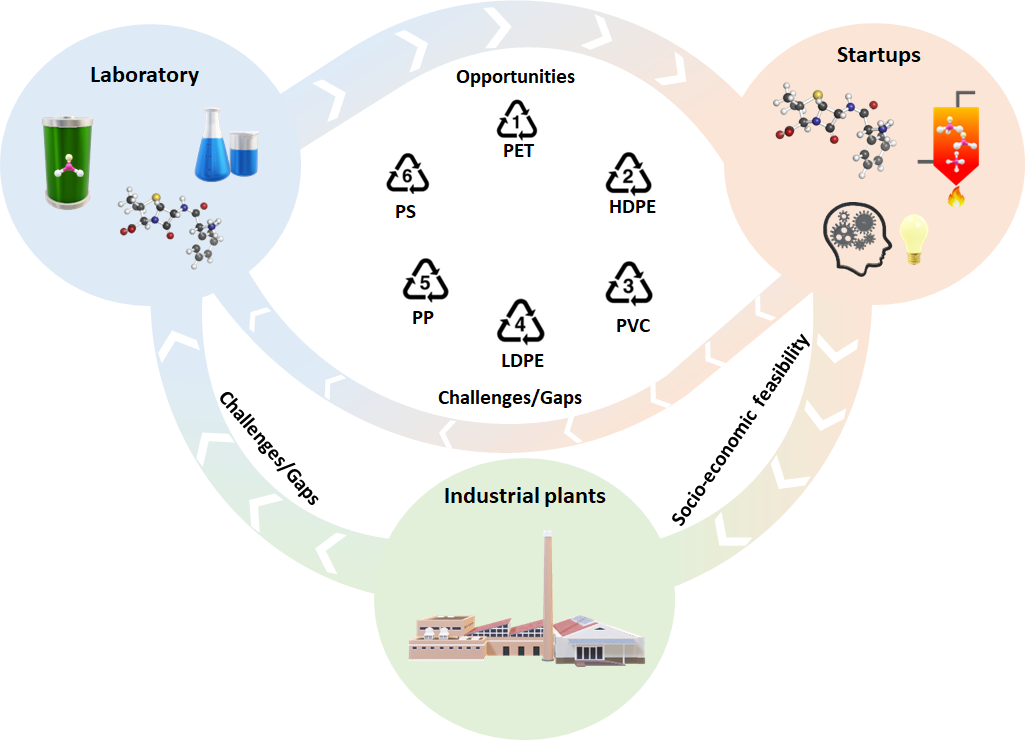Waste & Circular Economy
Chemical Recycling

Chemical recycling represents a groundbreaking solution to the plastic waste crisis. It encompasses innovative processes that break down plastics into their basic chemical building blocks, which can then be used to manufacture new products. This approach is particularly valuable for complex plastics that are challenging to mechanically recycle.
Businesses can explore various chemical recycling technologies such as pyrolysis, depolymerization, or liquefaction to embark on sustainable plastic waste management journeys. By doing so, they not only divert plastics from landfills and incineration but also support the development of a circular plastics economy, where plastics are continuously reprocessed and repurposed. Chemical recycling is a game-changer in the fight against plastic pollution, offering a viable path towards a cleaner, more sustainable future.
Businesses can explore various chemical recycling technologies such as pyrolysis, depolymerization, or liquefaction to embark on sustainable plastic waste management journeys. By doing so, they not only divert plastics from landfills and incineration but also support the development of a circular plastics economy, where plastics are continuously reprocessed and repurposed. Chemical recycling is a game-changer in the fight against plastic pollution, offering a viable path towards a cleaner, more sustainable future.
- Definition: Chemical recycling encompasses various processes that break down plastics into their chemical components for reuse in new products.
- Benefits: Enables recycling of complex plastics, reduces plastic waste, and supports a circular economy.
- Sample Strategies:
- Exploring pyrolysis or depolymerization technologies.
- Collaborating with research institutions for innovative chemical recycling solutions.
- Identifying applications for products made from chemically recycled materials.
